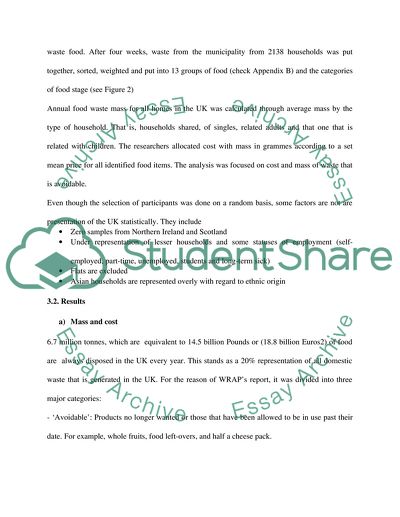Cite this document
(“Household Food Waste in the UK Essay Example | Topics and Well Written Essays - 1000 words”, n.d.)
Household Food Waste in the UK Essay Example | Topics and Well Written Essays - 1000 words. Retrieved from https://studentshare.org/environmental-studies/1654171-case-study-household-food-waste-in-the-uk
Household Food Waste in the UK Essay Example | Topics and Well Written Essays - 1000 words. Retrieved from https://studentshare.org/environmental-studies/1654171-case-study-household-food-waste-in-the-uk
(Household Food Waste in the UK Essay Example | Topics and Well Written Essays - 1000 Words)
Household Food Waste in the UK Essay Example | Topics and Well Written Essays - 1000 Words. https://studentshare.org/environmental-studies/1654171-case-study-household-food-waste-in-the-uk.
Household Food Waste in the UK Essay Example | Topics and Well Written Essays - 1000 Words. https://studentshare.org/environmental-studies/1654171-case-study-household-food-waste-in-the-uk.
“Household Food Waste in the UK Essay Example | Topics and Well Written Essays - 1000 Words”, n.d. https://studentshare.org/environmental-studies/1654171-case-study-household-food-waste-in-the-uk.


